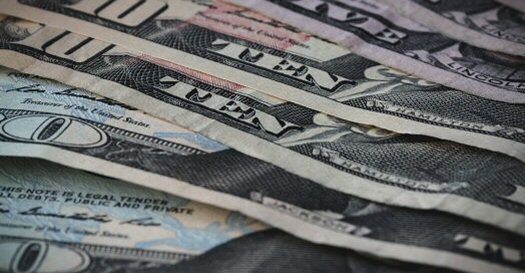|
 New money-exchanging technologies, like the Venmo app, have taken America by storm. But since 2007, Kenya has been using an even simpler mobile payment service that doesn't even require an app. It's called M-Pesa, and it's a cutting edge money-exchange system that relies on text messaging.
New money-exchanging technologies, like the Venmo app, have taken America by storm. But since 2007, Kenya has been using an even simpler mobile payment service that doesn't even require an app. It's called M-Pesa, and it's a cutting edge money-exchange system that relies on text messaging.
M-Pesa is so named for the "M" in "mobile" and the Swahili word "pesa," meaning money. The innovation was perfect for Kenya, where bank branches are scarce and the majority of the population does not have a bank account, but about 80% of the population has a cell phone.
The way it works is quite simple. At any of about 85,000 locations across Kenya, people can create a balance on their mobile phones by giving cash to an agent. This money can then be used to make transactions via text, without having to link money to a bank account or credit card, or even deal with a mobile app.
The technology mitigated a few of the major problems that come along with relying on cash. A large issue Kenya faced before the spread of M-Pesa was theft of cash on buses, which were needed to transport money from their source in urban jobs to workers' families in rural areas. This travel in and of itself is also an issue that M-Pesa takes care of; when it is a strain to travel in order to deliver needed money, workers need not worry about making extra trips with this mobile system.
Furthermore, M-Pesa allows for all sorts of exchanges beyond those between family and friends, including paying for goods at shops and services like taxis. Because it is so widely used, Kenyans can forgo the worries of carrying around cash and keeping their money safe, enjoying the security of a digital store of money and mobile payments for a great variety of transactions.
M-Pesa's success has been staggering. Of Kenya's population of 44 million, 19 million people use M-Pesa. This figure includes more than two thirds of Kenya's adult population. Given these numbers, it is unsurprising that about one quarter of the country's economy is conducted through M-Pesa, and that the service has been a boon to urban commerce.
The consequences of M-Pesa for daily life across Kenya have been huge, too. While the service has naturally offered a boost to the economy of cities, it has also notably impacted poor rural areas. By safely and reliably facilitating the transportation of money to very rural areas, and giving residents of those areas a safe way to bank and make transactions, M-Pesa has made it easier for rural Kenyans to access basic necessities.
For example, in some rural areas, solar panels are powered by payments made using M-Pesa. Solar panels are a safer and more sustainable alternative to kerosene lamps that might otherwise be used in these areas. M-Pesa even facilitates necessities as basic as clean water; in several rural villages, residents can operate a well pump via M-Pesa payments.
M-Pesa's simplicity, efficacy, and specificity to Kenya's economy are impressive testaments to the power SMS can hold, and certainly give other digital payment applications a run for their money. Perhaps texting will embody a more widespread solution in other countries in years to come.
About the Author -
Sharon Housley is the VP of Marketing for NotePage,
Inc. a software company for communication software solutions.
http://www.notepage.net |
